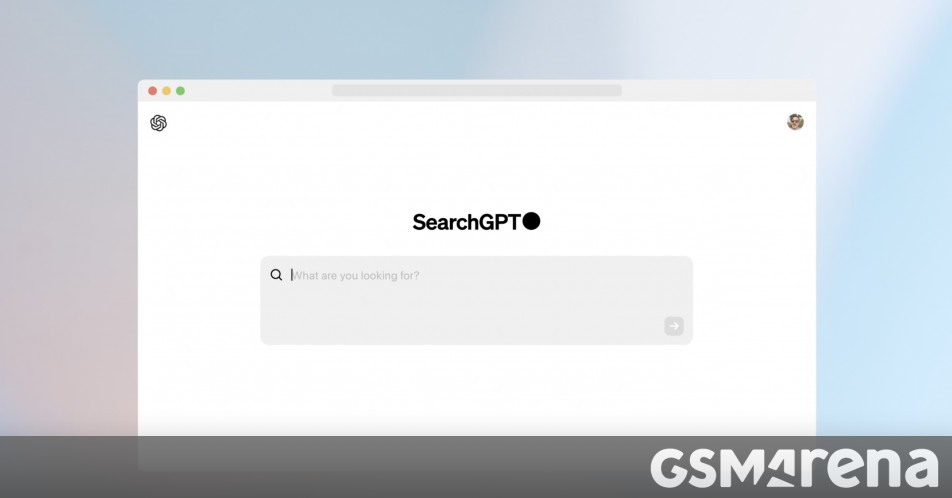If someone missed that: it returned a wrong answer even in the demo video.
Oh cool! A search engine that’ll give you fake URL’s!
Cool, so the worst part of modern search engines has been made into its own standalone search engine. Very neat.
I don’t get the hype around LLM, it is a terrible way to search. It has never give me anything useful on any of my search, ever.
Most of the time asking chatgpt anything non-trivial, it will just spit out gibberish that doesn’t mean anything.
Who in their right mind would look at these terribly stupid thing and think: Yeah! This garbage is going to advance humanity.
I don’t get the hype around LLM, it is a terrible way to search
I’ll be playing devil’s advocate here just for a moment (despite the huge ecological, moral, political and economical costs) :
- what LLM does provide is a looser linguistic interface. That means instead of searching for exact words, one can approximately search for the “idea”. That means instead of hitting just the right keywords that an expert might know, one can describe a partial solution, a very rough guess of what the problem might be, and possibly get a realistic sounding answer. It might be wrong yet it might still be a step in the right direction.
So… yes I also don’t think the hype is justified but IMHO it’s quite clear that providing a solution that makes an interface easier to get some OK-looking result would appeal to masses. That means a LOT of people get their hopes up about potential empowerment and a few people ride that bubble making money on promises.
PS: for people interested in the topic but wanting to avoid the generative aspect I believe https://en.wikipedia.org/wiki/Semantic_search is a good starting point.
Have you tried perplexity.ai? Using it to do some programming and it’s quite good so far. It’s basically LLM + Search Engines.
You can also use it to use different models (not just with ChatGPT).
Sometimes even run the code itself (Python for my case) and see if it’s valid.
Last time I tried ChatGPT it cannot even do a trie in Haskell, so I don’t see any way it is useful for me, unfortunately. IIRC, I was testing with some trivial modification of a trie, but I do not remember at this point.
Maybe it is useful for college homework, but I have yet to find any problem it can solve beyond college. But I would love to learn more, since you have more experience with it. :)
Edit: I tried a problem I encountered couple month ago on https://perplexity.ai. I want to implement a parser in Haskell that do not halt on error, but record the error and keeps going.
It should take 2 lines with mtl, and the AI gives me a more verbose answer that is also completely wrong.
So… I don’t see how they are helpful, honestly. Sorry.
Can’t say I have the same experience. Other than for old niche content, the sources cited from asking perplexity.ai (I just use it since it’s free, no idea how it compares to others) tend to be exactly what I’m after.
That would be great if they just got the LLM AI out of real search engines.
@schizoidman I can’t wait to use the energy requirements of a small country to search for shoes and convert from kg to lbs!
Only a matter of time until someone genuinely puts glue on their pizza
I hope it’s using a shit load of energy, like other “AI” stuff. Because we’re absolutely not in a climate crisis where reducing consumption is necessary. More “AI” that consumes more power, that’s exactly what we need.
GPT: Because nobody in their right mind would waste nukes destroying the Internet.
I have kind of just been using ChatGPT 4o as my search engine, it’s been working pretty well.
I wonder what the energy/environmental impact is vs a traditional search.
Completely terrible. An AI “search” takes as much electricity as hundreds to thousands of normal searches.
'AI" is TERRIBLE for climate change because they’re increasing demand for electricity so much that they’re keeping coal plants going that were even scheduled for decomissioning because they use A LOT of power.
I’ve been trying to find a search engine that doesn’t use AI for this very reason, but with little luck. Any suggestions?
Doesn’t DuckDuckGo not have AI?
Not to my understanding?
This can be resolved by building the data centers to cold countries like here in Finland. Servers are very good at converting electricity to heat, and the heat can be used to heat homes.
Microsoft Azure data center in Espoo is going to heat up 60% of the city’s district heating network.
Also the electricity here in Finland is one of the cleanest, like in all Nordics (hydro, wind, nuclear)
deleted by creator
Same (in some situations). I feel like searching for “how to do X?”, where X is a simple problem or knowledge, more often than not the classic search results are linking to articles that are way too long and talk around the solution way too much before actually getting to it (if at all).
Sure, I don’t trust the AI responses for critical stuff, but I honestly rarely trust a random blog article either.
I used perplexity pretty exclusively for a while. Especially for work. Both have their place and use cases but when I’m looking for something truly specific or nuanced, it’s DDG and a manual search.
So their solution to a problem that their existing problem created is to use that problem to solve itself.
deleted by creator
No, its fancy autocomplete at a huge scale. Sometimes it returns correct answers.
A search engine should be taking a list of websites and metadata about those websites and returning results based on some ranking with the original desire being to get you what you wanted. (The current desire is just how much money can be extracted from your hands on the keys)
No. ChatGPT pulls information out of its ass and how I read it SearchGPT actually links to sources (while also summarizing it and pulling information out of it’s ass, presumably). ChatGPT “knows” things and SearchGPT should actually look stuff up and present it to you.
Kagi supports this since a while. You can end your query with a question mark to request a “quick answer” generated using an llm, complete with sources and citations. It’s surprisingly accurate and useful!
deleted by creator
From the train dataset that was frozen many years ago. It’s like you know something instead of looking it up. It doesn’t provide sources, it just makes shit up based on what was in the (old) dataset. That’s totally different than looking up the information based on what you know and then using the new information to create an informed answer backed up by sources
It is but its not updated in real-time unlike searchgpt









